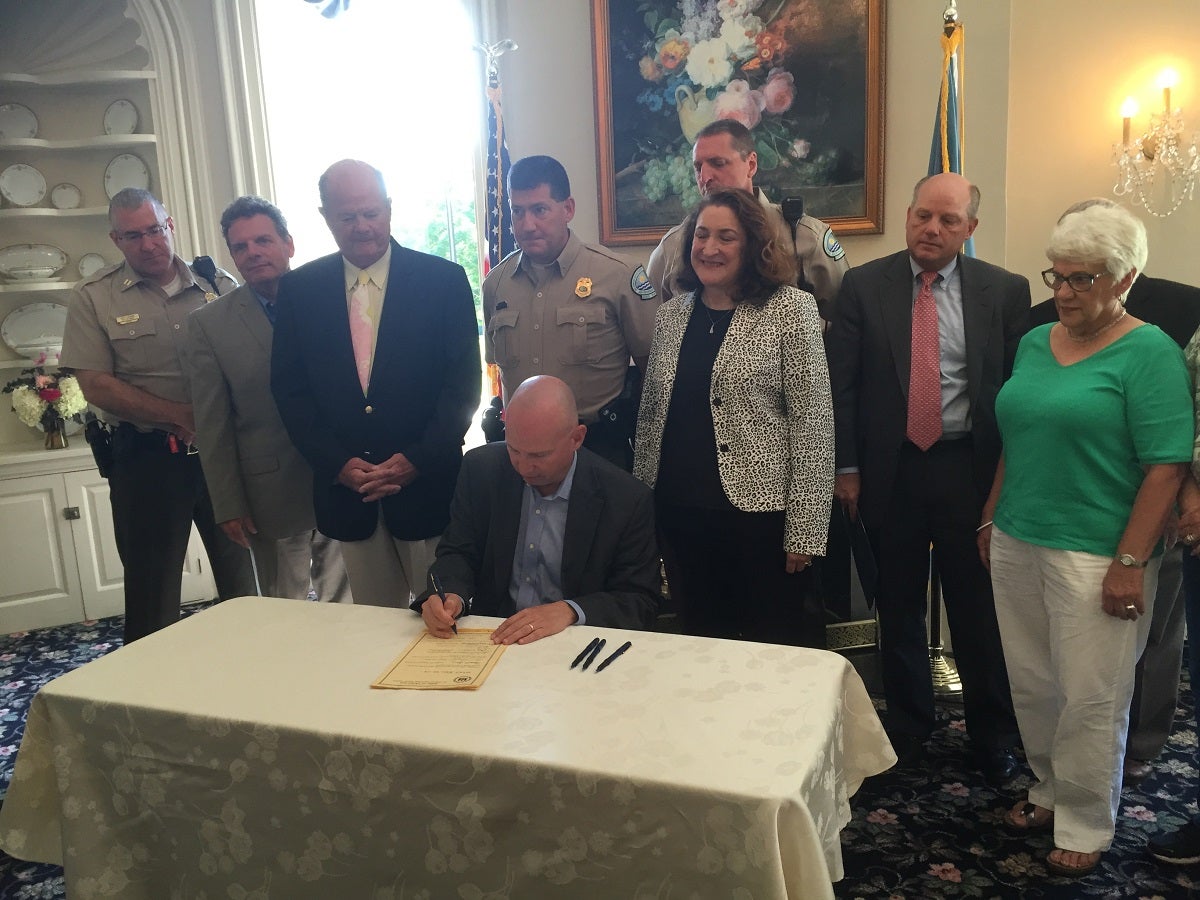Delaware lessens penalties for minor environmental offenses

Governor Markell signs Senate Bill 114, which declassifies a number of minor violations associated with Delaware State Parks. (Zoe Read/Newsworks)
Gov. Jack Markell, D-Delaware, signed legislation Friday that aims to end overly harsh penalties for minor environmental offenses.
When a person visits one of Delaware’s state parks, and decides to let their dog off its leash or drive on the beach without the proper permit, they likely wouldn’t expect to face a criminal record.
However, these offenses could show up on a person’s criminal background check, which may affect them when applying for a job.
But on Friday, Gov. Jack Markell, signed legislation that aims to end overly harsh penalties for minor environmental offenses like these. Almost two dozen slight Delaware State Park offenses will be changed from unclassified misdemeanors to environmental violations.
“They are violations and ought to be noted as violations, but the penalties should be appropriate to the violation,” Markell said during an announcement at Bellevue State Park in Wilmington.
The bill, sponsored by Senate Majority Leader David McBride, D-Hawk’s Nest, and Rep. Debra Heffernan, D-Bellefonte, will make penalties for environmental offenses similar to that of the penalties for small driving violations, where an offender pays a fine.
The bill also exempts the first offense of these violations from being included on criminal history records.
The Department of Natural Resources and Environmental Control found there was a large amount of requests to expunge records for environmental related charges that were criminal misdemeanors.
Some of the minor environmental violations included fishing without a license, driving on a state park beach without a surf permit and letting a dog off its leash. Many of these statutes had been in place 40 or 50 years.
“Time has changed, our culture has changed, our society has changed, and this is a more pragmatic approach to enforcement,” said David Small, DNREC secretary.
“The fine structure still remains, so there’s still a disincentive and a lesson to be learned financially for those who violate, but they don’t have to worry about that black mark on their record.”
Delaware Chief Justice Leo Strine said the Board of Pardons receive about 55 applications a month. He said McBride’s legislation alleviates a clogged up court system and also makes good use of tax payer dollars.
“We want the most serious offenses in society dealt with seriously. People who commit violent crimes should go to jail. But that’s why we don’t want to distract the police and the prosecutors who have to protect us from serious criminals with dealing with minor offenses,” Strine said.
“This may seem small, but to every individual in its hundreds, over time, of people who don’t have to get a pardon, can pay their fine and learn their lessen, and not have a barrier to a job, this kind of thing is not small, it’s huge.”
McBride said he will seek other opportunities in the future to alleviate an over-crowded court system, and to make the justice system more fair.
“This isn’t the last piece of legislation you’re going to see, because there are many opportunities within our legislative code to look at declassification,” he said.
WHYY is your source for fact-based, in-depth journalism and information. As a nonprofit organization, we rely on financial support from readers like you. Please give today.





